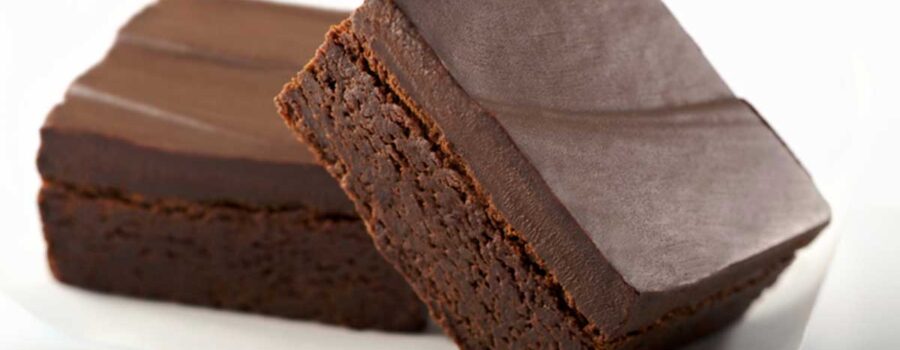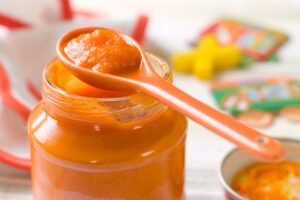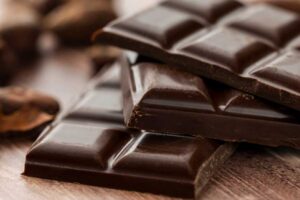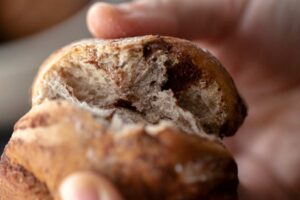I bet we’ve all grabbed a Little Debbie snack cakes for our kids (or ourselves) at some point, I know I had probably hundreds as a kid. They’re easy, tasty, and well, pretty nostalgic, but have you ever thought about what’s inside them? I did some digging and wanted to share what I found with you.
What’s Really in That Cake?
Sugar, Corn Syrup, and Your Kid’s Health
Those snack cakes are packed with sugar and corn syrup. You don’t need to be a nutritionist to know that’s bad news for weight gain and can even lead to some serious health problems down the road, like diabetes.
Enriched Bleached Flour
This one surprised me. Enriched bleached flour is basically wheat flour stripped of all the good stuff, then packed with synthetic vitamins and minerals. It’s not as easily absorbed by the body, and those chemicals used to bleach the flour can be downright nasty.
Soybean Oil: A Slippery Subject
Soybean oil is more than just a common ingredient in many of our daily food products; it’s a subject that requires careful examination. Consumed in large quantities, soybean oil may contribute to chronic inflammation, leading to potential health issues.
Some Strange Additives
Ever heard of TBHQ? Me neither, but it’s in there, and it’s used to make those cakes last longer on the shelf. There’s some debate about its safety, and the same goes for citric acid.
The Health Impact on Our Kids
Let’s be real here. We’re parents, and our kids’ health is our top priority. Those snack cakes might contribute to weight problems, unhealthy eating habits, and even affect their cognitive development. That’s enough to make me think twice about tossing them into the shopping cart.
How Those Snacks Affect the Planet
As parents, we’re also thinking about the world our kids will inherit. The production of palm oil is causing deforestation, and some of the manufacturing practices raise serious ethical questions. It’s hard to enjoy a treat when you know what’s going on behind the scenes.
What Can We Do?
Healthier Snack Choices
We can still indulge our sweet tooth without compromising our values. Fresh fruits, nuts, or even homemade treats can be both satisfying and guilt-free.
Reading Labels
Let’s be informed consumers and take a moment to read labels. Understanding what’s in our food helps us make better choices.
In Conclusion: We Have Choices
Look, I’m not saying never to eat Little Debbie snack cakes again, but knowing what’s inside them makes me want to make smarter decisions for my family and the environment. There are plenty of alternatives out there, and we have the power to choose what’s best for our loved ones and the planet. Let’s make those choices count.
References:
- Leitner, Deborah R et al. “Obesity and Type 2 Diabetes: Two Diseases with a Need for Combined Treatment Strategies – EASO Can Lead the Way.” Obesity facts vol. 10,5 (2017): 483-492. doi:10.1159/000480525
- “What Makes High Fructose Corn Syrup so Bad?” Hartford Hospital | Hartford, CT, www.hartfordhospital.org/about-hh/news-center/news-detail?articleId=27851&publicid=461.
- https://www.hartfordhospital.org/about-hh/news-center/news-detail?articleId=27851&publicid=46
- https://www.ncbi.nlm.nih.gov/books/NBK208880/
- Altoom, Naif G et al. “Deleterious effects of potassium bromate administration on renal and hepatic tissues of Swiss mice.” Saudi journal of biological sciences vol. 25,2 (2018): 278-284. doi:10.1016/j.sjbs.2017.01.060
- Ng, Chun-Yi et al. “The role of repeatedly heated soybean oil in the development of hypertension in rats: association with vascular inflammation.” International journal of experimental pathology vol. 93,5 (2012): 377-87. doi:10.1111/j.1365-2613.2012.00839.x
- Németh, Krisztina et al. “Chronic Exposure to the Food Additive tBHQ Modulates Expression of Genes Related to SARS-CoV-2 and Influenza Viruses.” Life (Basel, Switzerland) vol. 12,5 642. 26 Apr. 2022, doi:10.3390/life12050642
- Sweis, Iliana E, and Bryan C Cressey. “Potential role of the common food additive manufactured citric acid in eliciting significant inflammatory reactions contributing to serious disease states: A series of four case reports.” Toxicology reports vol. 5 808-812. 9 Aug. 2018, doi:10.1016/j.toxrep.2018.08.002
- “Processed Foods: Health Risks and What to Avoid.” Medical News Today, MediLexicon International, www.medicalnewstoday.com/articles/318630#sugar.
- “Metabolic Syndrome.” Mayo Clinic, Mayo Foundation for Medical Education and Research, www.mayoclinic.org/diseases-conditions/metabolic-syndrome/symptoms-causes/syc-20351916.
- O’Neil, Adrienne et al. “Relationship between diet and mental health in children and adolescents: a systematic review.” American journal of public health vol. 104,10 (2014): e31-42. doi:10.2105/AJPH.2014.30211011. Khezerlou, Arezou, et al. “Alarming Impact of the Excessive Use of Tert-Butylhydroquinone in Food Products: A Narrative Review.” Toxicology Reports, vol. 9, 2022, pp. 1066–1075, doi:10.1016/j.toxrep.2022.04.027.








